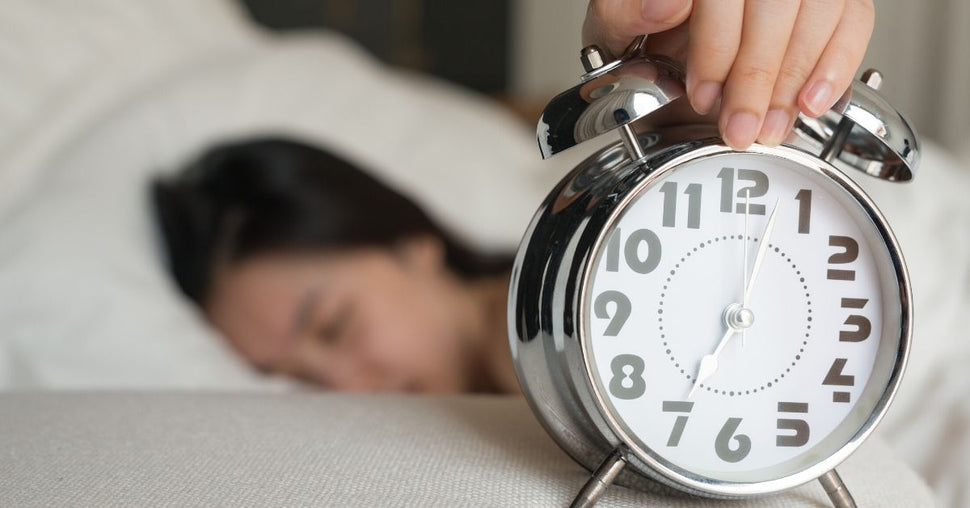THIS Is Why You Should Not Hit The Snooze Button In The Morning!
18 Nov 2019
Love getting the five to 10 minutes of extra sleep in the morning? It could be harming your body. Learn why you should stay away from the snooze button.
When I wake up early in the morning,
Lift my head, I’m still yawning
There’s something timeless about the lyrics of this Beatles song, and we bet you relate to it. If you wake up every morning to the annoying sound of an alarm and feel like it’s gone-off too early, you probably also hit the snooze button like clockwork. After all, when you’re tucked in bed and craving some more shut-eye, the idea of 10 more minutes of sleep can seem enticing. Unfortunately, this may not be the best idea as experts have been warning against the risks of hitting snooze every morning.
Immediate Effects of Hitting the Snooze Button

To understand the impact of the snooze button, you need to understand the stages of sleep. We’ll spare you the technical details of sleep science, and give you an overview of the sleep cycle. When you just fall asleep, you enter the first stage of light sleep, in which your heart rate and body temperature start to drop in preparation for deeper and more refreshing sleep.
The deep sleep stage that follows is critical for health, as this is when energy is directed towards the regeneration of body tissue, musculoskeletal development, and strengthening immune function. This is followed by REM sleep, in which the brain is highly active, producing the most vivid and intense dreams. Despite this heightened brain activity, it is regarded as restorative and essential for optimal cognitive function the following day. The REM stage kicks in about an hour and a half after you fall asleep and occurs in cycles through the night.
Towards the morning, you’re typically near the end of your last REM cycle and your body is preparing for waking up. It does this by raising body temperature and releasing brain chemicals like acetylcholine and serotonin to increase alertness. When you wake up with your first alarm, the REM cycle ends, and your body is well into the waking process. If you hit the snooze button instead, you’re throwing yourself back into REM sleep or sleep inertia . When the alarm goes off again, you’re now in the middle of REM sleep rather than at the end, and you will wake up feeling foggy, tired, and disoriented – effects that will stay with you throughout the day. However, this is just one of the consequences of using the snooze button.
Long Term Health Risks of Hitting the Snooze Button

Sleep is regulated by two internal mechanisms–circadian rhythm and homeostasis. For the sake of simplicity, we’ll just refer to them as your biological clock. If you sleep regular hours (7-8 hours at night), your biological clock would be gearing for wakefulness when the alarm goes off. Using the snooze button simply confuses your brain and creates confusion with the internal biological clock. It also conditions your brain to respond to an alarm as a notification for ‘some more sleep’, rather than as ‘time to wake up’.
Over time, this confusion increases and your body is no longer sure how to respond to cues from your biological clock. This results in impaired sleep quality right from the start of your sleep cycle. You’re likely to spend a lot more time struggling to fall asleep and may have poor quality sleep. That’s important because even a week of poor sleep can mess with over 700 genes, raising stress levels, lowering immunity, and increasing inflammation.
As you may already know high stress, increased inflammation, and reduced immunity are among the biggest risk factors for a wide range of ailments, from common infections to more serious lifestyle diseases like heart disease, degenerative brain disease, and cancer.
Beat the ‘You Snooze, You Lose’ Syndrome

While it would be great to give up the snooze feature altogether, making dramatic changes can be tough no matter how desirable they might be. If you can’t quit snoozing altogether, try changing tactics. Start using the snooze button not to go back to sleep, but to lie in bed stretching or meditating as you gradually wake up. Instead of hitting snooze repeatedly, set snooze limits, so that you can’t hit the button more than once.

Skin: Renew - Glutathione
- ₹1,594
- ₹1,594
-
₹2,200 -
You Save:
₹606 (27%)
Categories
- Choosing a selection results in a full page refresh.
- Press the space key then arrow keys to make a selection.
this is the sidecart







